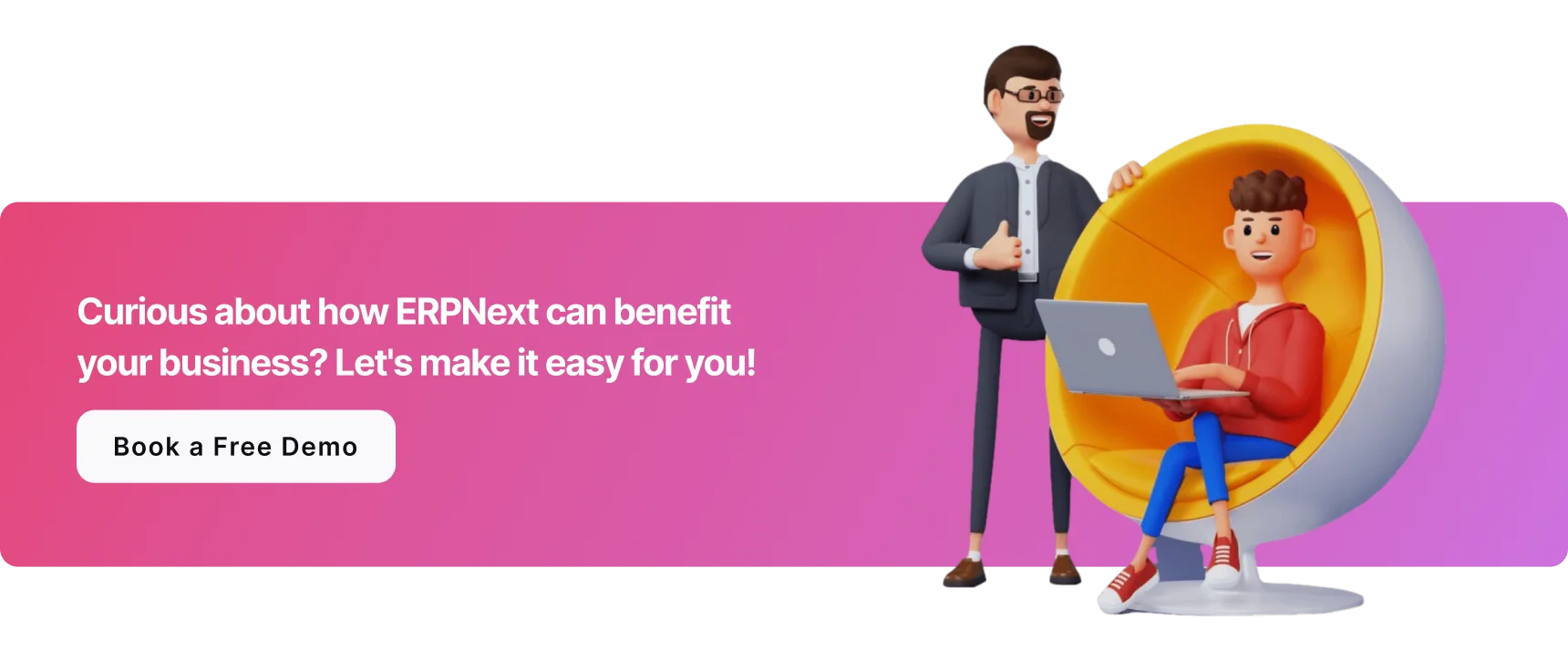BLOGS
ERPNext vs Ramco - Making the Best ERP Choice
· 9 min read
The global ERP industry is expanding rapidly and is expected to reach US $123.41 billion by 2030.
Choosing the best ERP (Enterprise Resource Planning) system is a decision that can greatly impact businesses of all sizes. In this article, we will dive deep into the world of ERP systems, particularly comparing two notable software solutions: Ramco ERP and ERPNext manufacturing software.
We’ll explore the features, benefits, and capabilities of ERPNext and Ramco ERP to help you make an informed decision. So, whether you’re a small startup or a large corporation, let’s unravel the world of open-source ERP software and manufacturing solutions to find the perfect fit for your business needs.
Overview of ERPNext
ERPNext is a full-featured, open-source ERP software solution for small and medium-sized businesses (SMBs). It helps SMBs manage all their core business processes, including accounting, sales, inventory, manufacturing, and customer relationship management (CRM).
Overview of Ramco
Ramco is a global and cloud-based solution offering a range of solutions, including Enterprise Resource Planning (ERP), Human Capital Management (HCM), and Aviation Maintenance and Engineering (M&E), to a wide array of industries, including manufacturing, logistics, aviation, and services.
Why ERPNext Outshines Ramco as an Alternative?
The selection of an appropriate Enterprise Resource Planning (ERP) solution holds great importance for any enterprise. Two prominent contenders in the ERP arena are ERPNext and Ramco. While both platforms offer many features and functionalities, ERPNext has seized the spotlight for several compelling reasons, making it the preferred choice for numerous businesses.
Open-source Nature:
ERP is an open-source, customizable, and adaptable software that can be easily implemented to streamline industrial operations. Its open-source nature promotes collaboration, flexibility, and community-driven development.
Customization:
ERPNext is highly customizable to suit the specific needs of different businesses. Users can customize modules, workflows, and forms to align with their unique business processes. Its custom scripting and module development options are available for advanced customization.
Business Management:
ERPNext offers a comprehensive suite for managing various aspects of business operations. Modules cover accounting, inventory management, human resources, project management, sales, and purchase. It provides a centralized platform for efficient and integrated business management.
User-Friendly Interface:
ERPNext offers an intuitive and user-friendly interface that enhances ease of use. It is designed to simplify complex business processes, making it accessible to users with varying technical expertise.
Cloud Integration:
ERPNext offers cloud-based deployment options, providing flexibility and accessibility. Its cloud integration facilitates remote access to data, enabling real-time collaboration and information sharing.
Version Control:
It incorporates version control mechanisms for customization and configuration changes. ERPNext also helps track and manage differences, facilitating system maintenance and upgrades.
Key Differences between ERPNext and Ramco
Benefits for Business Industries
Small and Medium-Sized Enterprises:
Small and Medium-Sized Enterprises (SMEs) derive significant advantages from ERPNext’s affordability and adaptability. As SMEs grow, ERPNext scales with them, providing a flexible solution that doesn’t strain budgets.
Types of Small and Medium-Sized Enterprises:
Local Retail Stores
Restaurants/Cafes
Consulting Services
Graphic Industries
Boutique Hotels
Artisanal Crafts
Local Farms
Startups
Manufacturing Industries:
Manufacturing industries optimize their production and distribution processes with ERPNext software. This optimization enhances efficiency, reduces costs, and boosts productivity.
Types of Manufacturing Industries:
Automotive Manufacturing
Electronics Manufacturing
Consumer Goods
Pharmaceutical Manufacturing
Textile and Apparel Manufacturing
Heavy Machinery
Chemical Manufacturing
Retail and E-commerce Businesses:
Retail and E-commerce businesses harness ERPNext’s capabilities for inventory and sales management. ERPNext retail and E-commerce aids in tracking products, sales trends, and customer behaviors, enabling data-driven decisions and fostering growth.
Types of Retail and E-commerce Businesses:
Clothing Retail
Electronics Retail
Online E-commerce
Specialty Stores
Home Decor
Toy and Games Retail
Automotive Parts
Jewelry Retail
Why Should You Migrate to ERPNext?
When it comes to making an important decision of migrating to ERPNext or Ramco, ERPNext stands out as the best ERP software. Its adaptability, affordability, and customization set it apart, enhancing operations and fostering future success. While Ramco offers limited customization, ERPNext aligns with your business’s needs, making it the beacon of excellence in dynamic ERP systems. Choose the ERPNext system with confidence to shape your business’s future.
Please feel free to contact NestorBird at sales@nestorbird.com or Call/SMS/Whatsapp at +91-9878990102 to book a free demo today!





